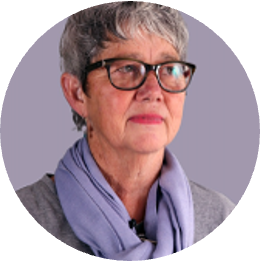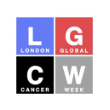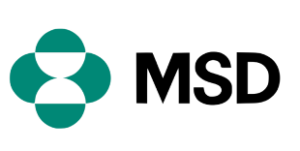
Daniel Santiago Medina Gaspar
Adjunct Research Professor EAFIT University, Colombia
It is predicted that by 2030 75% of global cancer deaths will occur in middle income countries (MICs).1,2,3 Though progress has been made in MICs to improve health outcomes for cancer patients – through tools such as National Cancer Control Plans (NCCPs), Health Technology Assessments (HTAs), and cancer surveillance plans – the progress has been unequal often due to factors such as inadequate funding and lack of transparency.4,5,6,7,8
Against this backdrop, MSD Oncology Policy grantees* convened at the 2023 World Health Assembly to discuss lessons learned from their research and calls to action to improve health outcomes by advancing access to innovative cancer care in middle income settings. The conversation was framed in the context of grantee research in South Africa and Colombia.
In South Africa, there is a treatment disparity between the public and private sector, with those accessing care in the public sector (up to 85% of the population) commonly diagnosed in late stage of disease, affecting treatment and survival. The research presented showed that to address these gaps in care and create a comprehensive Cancer Control Plan, collaboration is needed to strengthen the National Health Insurance Bill: Patient, Public, Private, Partnerships, and Philanthropy, with patients always at the forefront.9 As Health Technology Assessments (HTA) increase their influence they must center the patient voice ensuring that their perspectives contribute to local decision and policy-making processes.
“We understand at MSD that developing excellent medicines and vaccines is critical – however if they don’t get to people who need them we haven’t accomplished our mission. To ensure access, we need an end-to-end process, achieved through partnerships and policy development, that drive patient access.” – Jenelle Krishnamoorthy, MSD
Similar challenges exist in Colombia – the burden of disease is growing, and a large portion of patients are identified in late stage of their disease thereby increasing the cost of care.11,12 It is critical to improve the provision of care through effective policy to address patients’ needs, improve health outcomes, and lower the cost of care. Suggested measures to achieve this in Colombia include utilizing a patient-centered approach, increasing focus on prevention, and improving screening efforts.13,14
Key calls to action that panelists challenged the global oncology community to address included:
“[Building Capacity] is a long process involving strengthening the skills, practices, and resources of healthcare practitioners, but strong public-private partnerships can accelerate the process.” – Daniel Medina-Gaspar EAFIT Universidad, Colombia, MSD Oncology Policy Grantee
All panelists agreed that more collaboration is needed across stakeholders, from the private sector, government, academia, and patients to enact policy change that would provide access to innovative medicines. Jenelle Krishnamoorthy, Vice President, Global Public Policy, MSD, underscored this saying “It was energizing to hear and see the research that has been initiated through the MSD Oncology Policy Grants program and sparked new ideas and solutions to improve patient access to innovation. Through partnership and dialogue, we must continue to drive equitable access to cancer care, from prevention and detection, through to survivorship. MSD is committed to collaborating to enact meaningful change in cancer policy at a local and global level.”
MSD and LGCW are eager to continue the conversation in November at London Global Cancer Week on November 14th, 2023 – carrying these insights forward and continuing the dialogue with a focus on building resilient oncology care systems to optimize outcomes.
“We can learn from countries that have enacted NCCPs – a coordinating body such as a National Cancer Institute can fulfil the role of bringing the required stakeholders together to work towards a NCCP and a centralised system that can develop guidelines across the cancer continuum of care.” – Salomé Meyer, Cancer Alliance, South Africa MSD Oncology Policy Grantee

Daniel Santiago Medina Gaspar
Adjunct Research Professor EAFIT University, Colombia

Salomé Meyer
Independent Consultant, Cancer Prevention and Control Focus, South Africa

Debjani Mueller
Board of Directors, Health Technology Assessment International (HTAi), South Africa
World Health Assembly Panelists:
*DISCLAIMER
Through the Global Oncology Policy Grant Program, MSD funds independent health policy research to improve cancer care and outcomes for patients worldwide. The program was launched in 2019 with a goal to activate reputable researchers in key markets to initiate multi-stakeholder, well-rounded, and impactful dialogs on access, budget headroom, long term value, and health equity.


This event was a collaboration between London Global Cancer Week and MSD.
1High-burden Cancers in Middle-income Countries: A Review of Prevention and Early Detection Strategies Targeting At-risk Populations | Cancer Prevention Research | American Association for Cancer Research (aacrjournals.org)
2Global cancer statistics 2018: GLOBOCAN estimates of incidence and mortality worldwide for 36 cancers in 185 countries – Bray – 2018 – CA: A Cancer Journal for Clinicians – Wiley Online Library
3Estimating the global cancer incidence and mortality in 2018: GLOBOCAN sources and methods – Ferlay – 2019 – International Journal of Cancer – Wiley Online Library
4The evolution of the population-based cancer registry – PubMed (nih.gov)
5Cancer Incidence in Five Continents: Inclusion criteria, highlights from Volume X and the global status of cancer registration – PubMed (nih.gov)
6Cancer Control in Low- and Middle-Income Countries: Is It Time to Consider Screening? | JCO Global Oncology (ascopubs.org)
7Full article: How Least Developed to Lower-Middle Income Countries Use Health Technology Assessment: A Scoping Review (tandfonline.com)
8Evolution & Influence of HTA in Emerging Markets – Value in Health (valueinhealthjournal.com)
9wcd2023_equity_report_fa.pdf (uicc.org)
10Pilot approach to analyzing patient and citizen involvement in health technology assessment in four diverse low- and middle-income countries | International Journal of Technology Assessment in Health Care | Cambridge Core
11Situación del cáncer en la población adulta atendida en el SGSSS de Colombia, 2018 – Cuenta de Alto Costo
12Costos directos de la atención del cáncer de mama en Colombia | Revista Colombiana de Cancerología (revistacancercol.org)
13Breast cancer in Colombia: a growing challenge for the healthcare system | SpringerLink
14Cancer as a Chronic Illness in Colombia: A Normative Consensus Approach to Improving Healthcare Services for those Living with and beyond Cancer and Its Treatment – PMC (nih.gov)